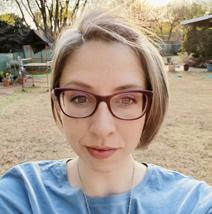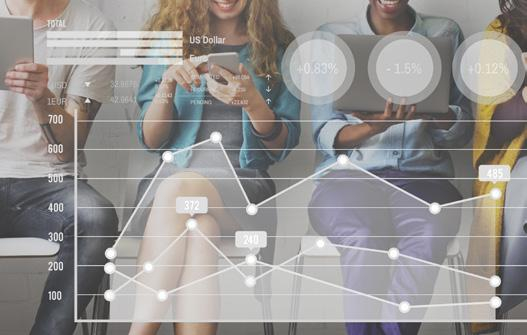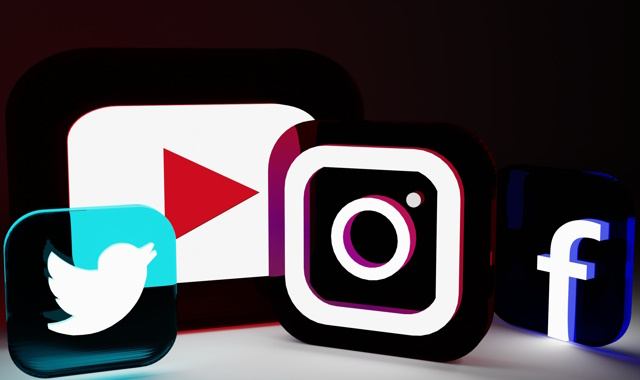
Digital marketing guru Natasha Jayne Heiberg shares her insights and expertise with us on the most effective ways to promote engagement on social media, and benefit from the analytics these interactions generate.
This article was first published in Meetings March/April 2023.
Meetings: Do you think social media is a good platform to engage with event attendees, and why/why not?
Natasha: Yes, definitely. Event planners should have a good understanding of who their ideal attendee is and should be using all of the relevant channels they can to communicate with their audience.
More than half of the world are on some form of social media, and that amount is steadily increasing. As a result, event planners are able to connect with people all over the world, and you can communicate with them in a matter of seconds and receive a response just as quickly.
More than half of the world are on some form of social media, and that amount is steadily increasing.
On the other hand, social media is time consuming, and closer to and during the event they require constant community management. People have no filter on social media and are able to share their thoughts, opinions, ask questions and more. This requires constant attention from brands.

Something to also keep in mind is that we are all really dependant on our phones, and probably check our phones and social media more often than we would care to admit. We all look to social media to share our stories, to gauge other people’s experiences and to make decisions. Social media plays a bigger role in people’s lives now, more than ever.
Event planners should have a well thought out social media plan in place, combining content with community management and paid adverts. Compile a list of FAQs ahead of time to answer those questions that come up pre-event, and have a social media triage and social media policy in place to help with decision making when a response is needed.
What kind of event engagement opportunities exist on social media that you would recommend to event planners?
There are so many content opportunities for every stage of the event. You just need some time to consider the details of your event, what is important to your audience and how they need to get there.
But social media is so much more than just posting content and hoping for it to land with your audience. Each social media platform has it’s own strengths and weaknesses, so event planners need to decide which platforms would suit their brand the best.
RELATED: Your guide to the most popular social media platforms and how to choose & use them
Think of social media as a self-updating source of potential leads for your audience funnel. Your audience is constantly updating their interests, their details and more – and they are actively listening to what others say and taking those inputs into their decision-making considerations.
Think of social media as a self-updating source of potential leads for your audience funnel.
Event planners should firstly understand their audiences and what their needs are. Not every good social media idea will work for every event. However, here are a few that are increasingly popular:
- Social selling or LinkedIn automation campaigns are lead-generation techniques where you can interact directly with your audience on the social media platform where they are most likely found. 78% of social sellers outsell peers who don’t use social media, according to LinkedIn. LinkedIn has also created other opportunities like newsletters, audio events and several other options under the Creator studio.
- Find your audience groups on platforms and connect with them. Groups are stricter in that you can’t just share promotional content. I would recommend connecting with group admins and developing a plan to promote your event. Host exclusive webinars with speakers, give out tickets, share knowledge, etc.
- The days of just posting images are behind us. Prioritise TikTok and Instagram Reels. You will need to create content that tells a story, is entertaining and provides value to your audience. They are lifestyle channels, and you don’t want to create content that is all about ‘selling’ all the time. You can repurpose content created for TikTok to Instagram Reels. On both platforms, you will reach new audiences. Post frequently, and then retarget those audiences in your ad campaigns. Repetition is also key with these channels.
- Finally, use ChatGPT to help with your social media campaigns. The possibilities are endless when you ask the generative AI to assist you.

What analytics can planners gather from social media, and how and why are they useful?
Planners can gather a wide range of analytics from social media depending on the purpose. Some common types of analytics and how they useful:
- Demographics: It’s important to understand who your audience is in terms of age, gender, location, and interests. This helps to identify your target audience and tailor the messaging or ad campaign accordingly.
- Engagement: Often used to measure the effectiveness of the campaign, these metrics track likes, shares, comments and clicks. This helps to identify which types of content perform the best.
- Sentiment analysis: By using natural language processing (NLP) to analyze people’s posts, you can determine their sentiment towards the brand and find areas for improvement.
- Influencer tracking: If you are able to use influencers, you can track their activity and the mentions. You should also request analytics from them as part of your agreement. This will help you identify good partners for future events.
- Competitor analysis: Track competitive events and their performance. You can also research their content, their audience and their engagement to help refine your own social media strategy.
To get the most out of your analytics:
- Set the baseline. Use the first event or most recent event as a base to determine when posts perform above average.
- Create a dashboard. By building a dashboard and tracking multiple channels in one place, you will be able to see a more accurate picture of all of your analytics.
- Plan what your goals are, and measure your success by tracking traffic, community engagement, conversions, and follower growth.
More About Natasha
Natasha Jayne Heiberg is an independent marketing manager, strategic communications specialist and digital strategist. She has extensive experience in the business events niche, having launched numerous marketing campaigns and strategies with some of South Africa’s favourite B2B trade show brands like Markex, A-OSH Africa, Machine Tools Africa and more.
To find out more about Natasha, you can view her LinkedIn profile here.




